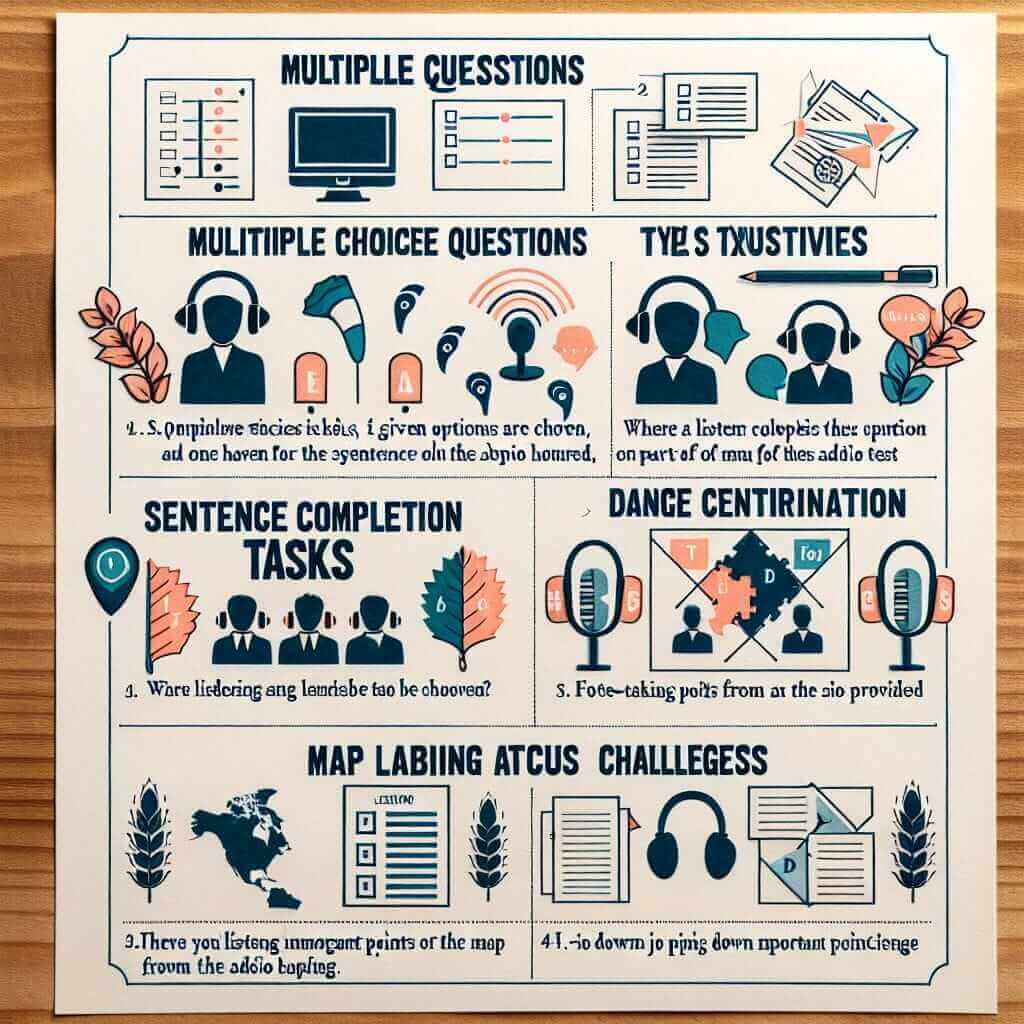The IELTS Listening test often leaves candidates feeling anxious, wondering, “Is it really that hard?”. As an IELTS instructor with over 20 years of experience, I’m here to tell you that while it does present its challenges, it’s definitely manageable with the right approach and consistent practice.
Nội dung bài viết
- Understanding the Challenges of IELTS Listening
- 1. Diverse Accents and Speaking Styles:
- 2. Once-Only Playback:
- 3. Variety of Question Types:
- 4. Distractors and Paraphrasing:
- Tips to Conquer the IELTS Listening Test
- 1. Embrace Accent Exposure:
- 2. Develop Active Listening Skills:
- 3. Master Different Question Types:
- 4. Utilize Practice Tests Effectively:
- 5. Time Management is Key:
- Example from a Real IELTS Listening Test:
- Final Thoughts: Practice Makes Perfect
Understanding the Challenges of IELTS Listening
Let’s address the elephant in the room: why do so many find the IELTS Listening test challenging?
1. Diverse Accents and Speaking Styles:
The test incorporates a range of native English accents, from British and American to Australian and Canadian. You’ll encounter various speeds and clarity levels, which can be tricky if you’re not used to this diversity.
2. Once-Only Playback:
Unlike everyday conversations, you only hear the audio once. This demands intense focus and the ability to quickly process information.
3. Variety of Question Types:
From multiple choice and sentence completion to map labeling and note-taking, the question formats are diverse. Each requires a specific approach and understanding of how to find the correct answers.
4. Distractors and Paraphrasing:
The test cleverly uses distractors – words or phrases similar to the correct answer but ultimately incorrect. It also heavily relies on paraphrasing, meaning the audio might express an idea using different words than what you see in the questions.

Tips to Conquer the IELTS Listening Test
Now that we’ve explored the challenges, let’s equip you with the strategies to overcome them:
1. Embrace Accent Exposure:
Listen to a wide range of English accents through podcasts, movies, TV series, and even YouTube videos. The more familiar you become, the less daunting the test will feel.
2. Develop Active Listening Skills:
Practice listening for key information, identifying synonyms and paraphrases, and paying attention to signposting words like “however,” “on the other hand,” or “in conclusion.”
3. Master Different Question Types:
Familiarize yourself with ALL the question types and practice specific strategies for each. Learn to predict answers, identify distractors, and use keywords to guide your listening.
4. Utilize Practice Tests Effectively:
Don’t just take practice tests – analyze your mistakes! Understand why you got answers wrong to identify your weaknesses and focus your practice accordingly.
5. Time Management is Key:
The test gives you time to read questions before each section. Use this strategically to anticipate potential answers and focus your listening.
Example from a Real IELTS Listening Test:
Let’s look at a common question type: Sentence Completion.
Audio Script: “The museum will be closed for renovations from the 1st of June until the end of August.”
Question: The museum will be closed for a period of …………… due to renovations.
Answer: three months
Explanation: The audio uses specific dates, but the question requires you to interpret the duration.
Final Thoughts: Practice Makes Perfect
Remember, the key to succeeding in the IELTS Listening test is consistent and focused practice. By understanding the challenges, adopting effective strategies, and utilizing resources wisely, you can significantly improve your listening skills and face the test with confidence.